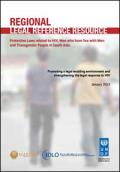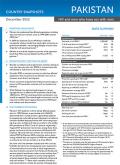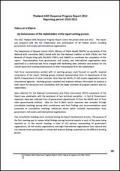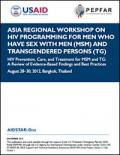Publications on Men Who Have Sex With Men (MSM)
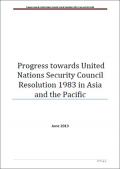
Resource | Publications,
The HLM targets and UNSC Resolution 1983 provide an opportunity to scale up universal access to HIV and AIDS related services for all uniformed service personnel and their family members and for people living with HIV and the key populations at higher risk of HIV with whom uniformed services personnel interact.

Resource | Publications,
In the Asia region, an increasing number of HIV infections occur among men who have sex with men (MSM)
and transgender people. Unless effective HIV prevention strategies are implemented, the Commission on
AIDS in Asia's regional projections predict that about half (46%) of all new HIV infections in Asia will soon be among MSM, an increase of 13% from 2008.
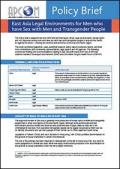
Resource | Publications,
This Policy Brief is adapted from the UNDP and APCOM report, titled ‘Legal environments, human rights and HIV responses among men who have sex with men and transgender people in Asia and the Pacific: An agenda for action’, covering 48 countries and territories of the Asia and Pacific region.
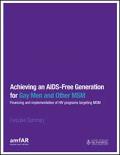
Resource | Publications,
The HIV/AIDS pandemic continues to have a devastating, though often invisible, impact on gay men and other men who have sex with men (MSM) around the world. In low and middle-income countries, MSM are 19 times more likely to be living with HIV than people in the general population and they represent an estimated 10 percent of new infections each year. Yet for decades the epidemic among MSM was officially ignored by governments, donors, and whole societies.
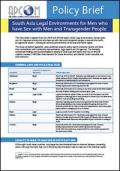
Resource | Publications,
This Policy Brief is adapted from the UNDP and APCOM report, titled ‘Legal environments, human rights and HIV responses among men who have sex with men and transgender people in Asia and the Pacific: An agenda for action’, covering 48 countries and territories of the Asia and Pacific region.
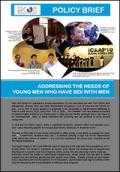
Resource | Publications,
The Asia and the Pacific region needs to find more effective ways to respond to the high and rising prevalence of HIV among MSM. The epidemic situations at country level require the development of programmes that respond to specific local circumstances where young men are practicing male to male sex.






